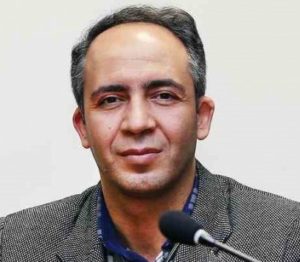February 07 2020

Iran’s economy is facing 13 monumental challenges that have built up over the past decades, Vahid Shaqaqi-Shahri, a university professor and economist, says.
“To fix any problem, we must first understand it. However, these major problems in our economy are being compounded rather than being resolved,” he was quoted as saying by the news website Fararu.
Shaqaqi-Shahri’s list of challenges are as follows:
1) Iran’s defective banking system is the first of these big challenges. Interest-free banking was approved in Iran following the Islamic Revolution in 1979, but in actuality it was never implemented. Currently, several Iranian banks are making losses and their financial imbalances have created a whole array of problems for the economy.
2) The bankruptcy of pension funds is the second mega challenge. Retirement funds not only do not earn an adequate return, but they also carry the burden of considerable losses. The government has to allocate more than 700 trillion rials ($5.4 billion) annually to the Civil Servants Pension Fund and Armed Forces Pension Fund to keep them afloat.
3) Unemployment among youth and university graduates is the third biggest challenge. Currently, the university graduates’ unemployment rate stands at 20 percent, as more than 1 million graduates are being added to the labor force every year.
4) Systemic corruption facing the private sector is an urgent economic challenge. Rampant corruption does not allow for any productive activity, so you can’t expect the private sector or entrepreneurship to thrive.
5) The fifth super challenge, according to the economist, is inequality and widespread discrimination. Policies must be directed to mitigate inequality, but due to misguided decisions made by politicians, the gap between the rich and poor is expanding by the day.
6) That Iran only has a handful of key trade partners is the sixth challenge facing its economy. More than 60 percent of the country’s trade is conducted with only five countries—China, the UAE, Turkey, South Korea and Iraq.
7) The government’s hidden subsidies to the energy sector are putting increasing pressure on the economy every year. The subsidy system is dysfunctional and needs to undergo a comprehensive reform.
8) Iran’s ineffective taxation system, the eighth super challenge, cannot contribute its due share to the total resources required for the country’s economic development.
9) Tax equity and fairness are nowhere to be seen in the economy. The government’s financing system is broken. Numerous incomplete development projects are being handed over by one government to another, indicating that resources are not being allocated properly.
10) Big government and vast bureaucracy form the 10th challenge. A smaller government would help reduce costs. Seven years after passage of the Sustained Improvement of Business Environment Act, the law has yet to be put into effect.
11-12) The hostile business environment and unscrupulous privatization processes are the 11th and 12th super challenges. The latter has given rise to the closure of economic entities and caused grave problems for factory workers.
13) Environmental issues such as air pollution form the 13th challenge. The frequent closure of schools in Tehran and other cities has inflicted extensive damage on the economy. Such a situation is here to stay for years to come and will take its toll on the economy in several ways.